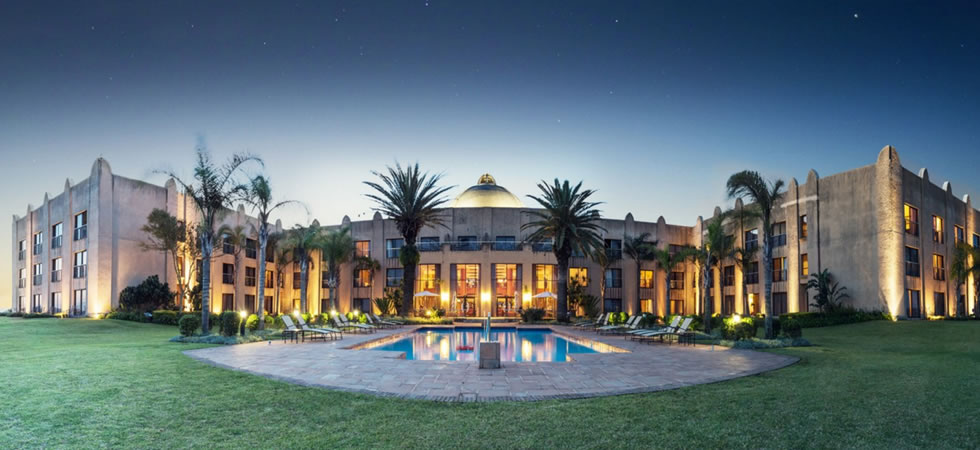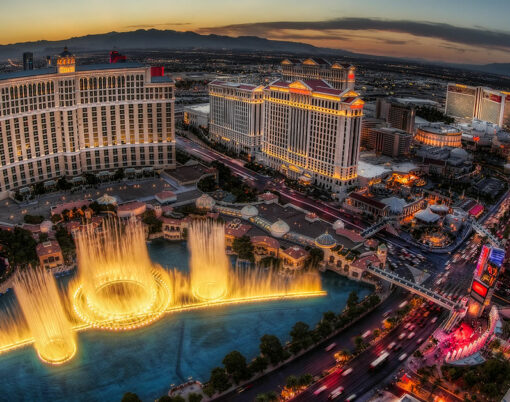As a growing number of businesses combat the difficult financial climate by slashing their budgets for good-causes, luxury travel writer Mark Southern visited Zambia to discover luxury hotel group, Sun International has done the opposite, and in turn has created one of the most remarkable social responsibility projects in Africa.
If you only ever listened to the regular media naysayers, you’d be forgiven for thinking that the only option in a financial crisis is to cut all but the absolutely essential. So say farewell to the office christmas party, so long to turning left on a plane, and adieu to that pot of money ring-fenced for good-causes. After all, if it doesn’t generate direct sales, then what’s the point?
And more and more businesses are adopting this attitude, with average 2014 corporate social responsibility budgets down to only 60% of their heights in 2004. But maybe things aren’t so clear-cut, or at least, maybe they shouldn’t be.
It’s been proven time and again that if a business gets its CSR right then a whole new dimension of commercial opportunities, both direct and non-direct, opens up. Maybe that pot of money was a little more important than it first seemed.
Sun International is one such brand, that has bucked the global trend, and continued to invest heavily into local good-causes around its 27 luxury hotel resorts in Africa. The group has poured millions into social initiatives over the recent past, making real differences to the people around its locations, with the group’s The Falls Resort in Zambia an exceptional example to entrepreneurs everywhere on how to create something far more valuable than simple profits.
We met up with Stain Musungaila, the head of the resort’s social responsibility programme, for a tour of just a small number of the many initiatives that run from his office. An office, it’s worth noting, that comes with one of the world’s most stunning waterfalls, Victoria Falls, around the corner. Every job has its perks.
Musungaila refers to his role as that of a ‘social entrepreneur’, and such is his popularity around the region, he is more likely to be answering to the pseudonym given to him by the locals of Chief Strawberry. Why the fruity nickname? Because he is all things to all people, and offers something different to everyone he works alongside. It’s a little more profound than most nicknames, it’s fair to say.
What’s immediately apparent about Musungaila is how much he enjoys what he does, and how the hundreds of people he interacts with on a daily basis seem to respond to him. When the social entrepreneur walks into a room, the first thing you notice is how infectious a smile can be, as his permanently wide-spread grin both welcomes and inspires everyone it comes into contact with. It’s disarming and sincere, and accompanied by twinkling eyes that mask an obviously strong inner desire to make real change for the people he works with every day.
But what does he feel the role of a social entrepreneur is, and how did he come to be one?
As he does with every question he is posed, he squints in the bright Zambian sunshine, listening intently, before laughing deeply and cheerily, and answering in his bassy rolling African lilt.
“For me, a social entrepreneur is someone who looks at the environment around them and tries to make it better. I became a social entrepreneur and developer of social entrepreneurs after having travelled around the world as a sailor. I discovered that people are all the same everywhere, but it is the environment of where you are that makes you what you are. Each one of us has a responsibility to improve the lives’ of the people that surround us, and the lives of those we interact with.”
One of the first social initiatives Musungaila delivered was to combat a series of major interlinking issues in the small city of Livingstone.
The social entrepreneur remembers, “There was a real problem at the time, as many kids found themselves on the streets because of the HIV/AIDS epidemic that swept through Zambia, with a third of people carrying the virus, and with very limited access to medical care.
“In addition, there was massive unemployment in the city, and the Zambian economy had collapsed. We went from having 39 industries and businesses in the city to almost none, with widespread poverty. All of these issues combined, and lots of children were left homeless and trying to survive through begging.
“We carried out a study and came up with a solution of empowering start-up orphanages, that were community driven or run. We settled on supporting five orphanages initially, although it is more now, and worked to empower the organisations by supporting their work, and delivering infrastructure and any required building work to provide good homes for the children. We also helped provide nutritious food, solid furniture, linen, clothes, shoes, books, and pencils – everything an orphanage might need.
“We’ve continued this work ever since, and we’re very proud to say that today Livingstone is the only city in Zambia, despite being the tourist capital, without children living or begging in the streets. They all have somewhere to go to live and get an education, and now we are able to employ some of these young people at the hotel, when they are old enough to work, and some are helping the programme now to support the next generation of young orphans.”
One of the most impressive things with the Sun International scheme is how the different initiatives fit together, feeding into each other seamlessly, and improving the results of all of them individually and collectively.
Musungaila reveals how they’ve achieved this, “We always work to make sure all the initiatives are inter-linked or complement each other. The Falls Resort does not throw anything away. We use and reuse everything.
“For instance, from the hotel kitchens, all the food and paper waste goes to the worm farm. The worm farm, which employs HIV+ workers only, gives us organic fertilizers, which are used in our organic farms, many of which are run by local women, and one where we exclusively train and employ blind workers. These in turn supply the hotels and local communities, feeding the families, and providing wonderful fresh food for the resort. The outputs of the farms, many of which are in areas previously assumed to be infertile, are actually so successful that we are now looking at exporting produce.
“It’s not easy, and we’re constantly coming up against challenges, where we need to find a real-world solution, but the key is to find a way to link it into each other. For example, we regularly have problems with elephants getting into the farmsteads and destroying the crops. So our problem was, how do we conserve the elephants but keep them away from the farms? Well, we did some research, and discovered that elephants do not like bees! We now keep bees near our farms to deter elephants, and has the dual benefits that the bees now help pollinate crops, and the local communities are able to grow their own business by selling pure honey and wax processed into candles to use in hotel and villages as lighting. Everything is linked!”
Musungaila has overseen a programme that continues to make the lives of locals better daily, by teaching them skills and providing them with necessary equipment. When we ask the social entrepreneur what the reaction to the empowerment initiatives has been, he cracks an even wider smile than normal.
“It’s all so amazingly uplifting”, he says, his beaming smile challenging the 30 degree blinding sunshine for brightness. “The blind workers, who previously could only beg for survival, are able to farm for themselves, feed their families, and send their children to school. Women are empowered to make a livelihood of their own, and without relying on men selling curios to tourists. Orphans have decent homes to stay in, and are able to go to schools. Old-aged people have decent living conditions. Farmers are able to learn new technologies, villagers are able to learn to keep bees rather than destroying trees for honey. People work for themselves, and it’s a joy to work with everyone.”
ut what of the business putting the ‘corporate’ in CSR? How important does Musungaila believe the brand has been?
“Sun International’s coming to Zambia was a blessing”, he says, his eyes becoming serious for just a second. “It was Sun International who started it at all, and continues to support all the projects. Other than direct employment at The Falls resort, local people are also able to employ themselves, and live decent lives. The projects are self-sustaining. We are there to get things started, and then let local workers take over.”
The results of Sun International’s work on the ground are impressive, and the group has developed the kind of local support structure that would make any other hotel in the world envious. A constantly evolving and educated local workforce is now available, locally farmed produce in a previously infertile area is now delivered daily, wastage is pretty much zero, and the area has increased in prestige, creating even more tourism that the hotel can benefit from. It’s a complete circle, which does great work, but crucially positively impacts on the business’ bottom line too. That pot of money we talked about earlier suddenly takes on a different look.
How does Musungaila think that other companies can learn from Sun International?
“Every other corporation should emulate Sun International, to make a better Zambia, Africa and world. Choose a social problem or issue that needs tackling, set up an initiative to help and develop the project to the point where is can be self-sustaining, and can be multiplied and emulated in other areas. Whatever you do, don’t start a project and not complete it, but aspire to hand it onto the local workers, and then remain in the background for support.
“Importantly, a corporation should identify the need before doing anything. Study and assess the advantages and disadvantages, and get the community involved and let them feel ownership. Don’t ever impose a programme or project on the community. If you do, it will fail.”
As the man they call Chief Strawberry walks away from our meeting, he does so as he arrived; smiling from ear to ear and shaking hands and sharing pleasantries with every passer by. He can’t pick a favourite project (they’re all too special on their own for him to choose), but it is quite clear that Sun International has created a system that any business, not just in the hospitality industry, would benefit from learning from.
The global economic downturn means every entrepreneur has a duty to analyse all costs, but it’s worth noting the long-term benefits seen by Sun International that good-cause investment can generate. It’s also very worthwhile for a business owner to identify a potential social entrepreneur from within their ranks, who can solve real-world problems with practical and self-sustaining solutions. It might just make that pot of money worth an awful lot more to the business in the future than the immediate saving might make.
Stain Musungaila is the social entrepreneur for Sun International. For more details on the brand visit www.suninternational.com.






















